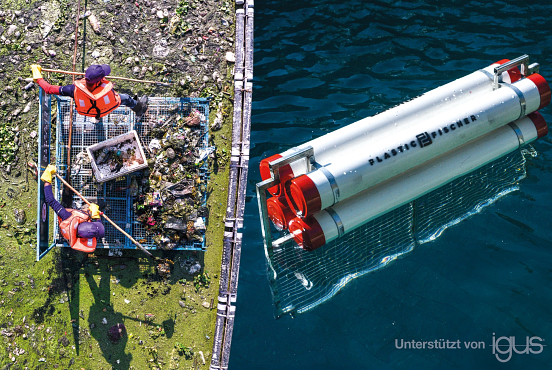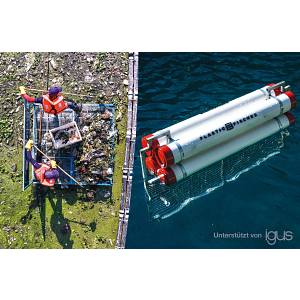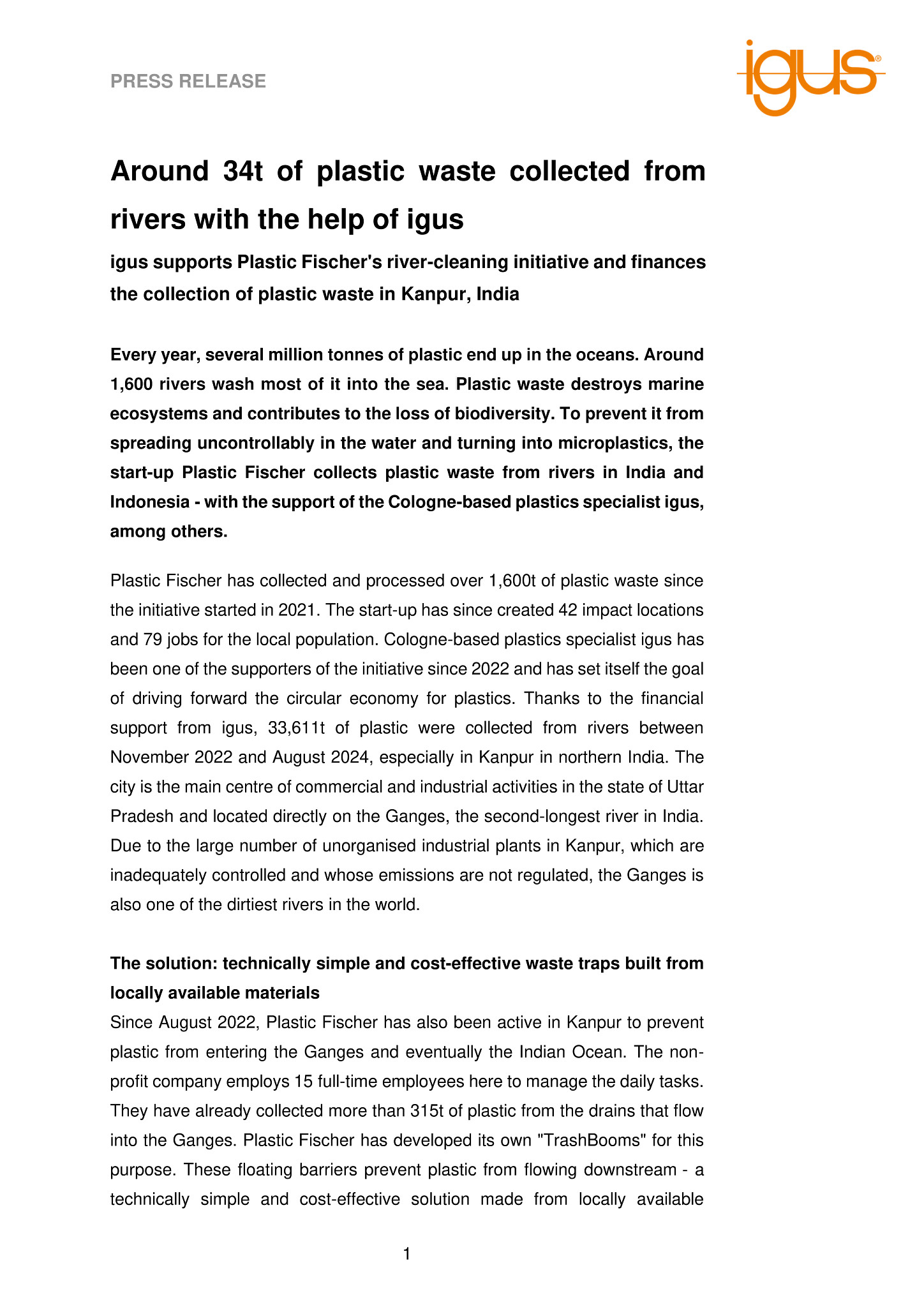Around 34t of plastic waste collected from rivers with the help of igus
August 28, 2024
igus supports Plastic Fischer’s river-cleaning initiative and finances the collection of plastic waste in Kanpur, India

Every year, several million tonnes of plastic end up in the oceans. Around 1,600 rivers wash most of it into the sea. Plastic waste destroys marine ecosystems and contributes to the loss of biodiversity. To prevent it from spreading uncontrollably in the water and turning into microplastics, the start-up Plastic Fischer collects plastic waste from rivers in India and Indonesia – with the support of the Cologne-based plastics specialist igus, among others.
Plastic Fischer has collected and processed over 1,600t of plastic waste since the initiative started in 2021. The start-up has since created 42 impact locations and 79 jobs for the local population. Cologne-based plastics specialist igus has been one of the supporters of the initiative since 2022 and has set itself the goal of driving forward the circular economy for plastics. Thanks to the financial support from igus, 33,611t of plastic were collected from rivers between November 2022 and August 2024, especially in Kanpur in northern India. The city is the main centre of commercial and industrial activities in the state of Uttar Pradesh and located directly on the Ganges, the second-longest river in India. Due to the large number of unorganised industrial plants in Kanpur, which are inadequately controlled and whose emissions are not regulated, the Ganges is also one of the dirtiest rivers in the world.
The solution: technically simple and cost-effective waste traps built from locally available materials
Since August 2022, Plastic Fischer has also been active in Kanpur to prevent plastic from entering the Ganges and eventually the Indian Ocean. The non-profit company employs 15 full-time employees here to manage the daily tasks. They have already collected more than 315t of plastic from the drains that flow into the Ganges. Plastic Fischer has developed its own “TrashBooms” for this purpose. These floating barriers prevent plastic from flowing downstream – a technically simple and cost-effective solution made from locally available materials that enables quick repair and high scalability. Every day, the waste traps are emptied and the plastic is taken to the sorting plant, where it is dried, separated and further processed. “We sell all recyclable materials to local recyclers,” explains Karsten Hirsch, CEO and Co-founder of Plastic Fischer. “As most high-value plastics such as PET bottles are already collected by the informal waste sector, only 5% of our non-organic material can actually be recycled. All non-recyclable materials such as plastic bags are burned and used as an alternative energy source in cement plants, replacing coal.”
Together against plastic waste
Plastic Fischer in Kanpur and Varanasi was also approved by the Ocean Bound Plastic Certification this year. This is one of only two independent verification options that exist in the plastic credit sector worldwide. The start-up also won the Next Economy Award as part of the 16th German Sustainability Award, which honours innovative business models that promote the “new economy”. “We plan to open at least four new locations in India in the coming year and are always looking for ways to become even better”, emphasises Hirsch. “For example, our TrashBooms are no longer made from PVC pipes, but from LDPE like plastic bags, which enables us to recycle parts of the river plastic into TrashBooms. We therefore hope that many other companies will follow igus’s example and support us.” Michael Blass, CEO of e-chain Systems at igus, adds: “We are always looking for new ways to promote the sustainable use of plastic. In addition to our own initiatives such as our chainge recycling platform for technical plastics or the RCYL bike made from recycled plastic, we also want to support innovative approaches of other companies. Plastic Fischer impressively demonstrates how you can make a big difference even with simple, cost-effective solutions. This will not only clean rivers, but create new jobs.”
You can find out more about Plastic Fischer here: https://plasticischer.com



